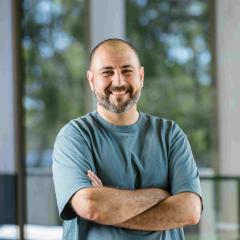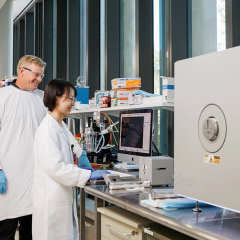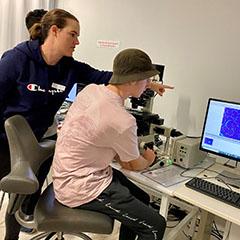The University of Queensland’s Centre for Advanced Imaging (CAI) hosted a special visit from The Royal (Dick) School of Veterinary Studies of The University of Edinburgh this month. As a joint engagement initiative between UQ Genomics, UQ School of Veterinary Science and the ARC Training Centre for Innovation in Biomedical Imaging Technology (CIBIT), the visit fostered important discussions for comparative oncology research and collaboration.
University of Edinburgh’s William Dick Chair of Veterinary Clinical Studies, Dean of Veterinary Medicine and Head of School, The Royal (Dick) School of Veterinary Studies, Professor David Argyle, and Associate Dean and Director of Veterinary Admissions, Dr Sally Argyle, visited UQ’s Gatton Campus, including the UQ Veterinary School and Veterinary Medical Centre, CAI and the Brisbane Veterinary Specialist Centre (BVSC) during the visit.
Professor Argyle presented seminars at CAI and Gatton campus about future developments and challenges in veterinary medicine and highlighted the importance of driving comparative and multidisciplinary collaboration, particularly for the future of cancer research.
He discussed the exciting developments in cancer research at The University of Edinburgh, involving key cross-disciplinary collaboration between the university’s veterinary, engineering, social sciences, medicine, chemistry, biology and bioinformatics teams.
An example highlighted was a medical device implant to sense hypoxia, allowing more targeted and effective radiotherapy developed with a team of engineers, chemists, vets and social scientists.
Professor Argyle believes comparative oncology is an important platform for the future of cancer research, and that advanced imaging is imperative in moving forward in both diagnostics and therapy delivery.
Comparative oncology investigates naturally occurring cancers in companion animals, such as pet dogs, which share clinical and biological similarities to human cancers. New cancer-fighting drugs for humans are developed while at the same time helping to cure cancer in companion animals. With veterinary partners, and funding from the Australian Cancer Research Foundation, CAI established the first comparative oncology research program in Australia.
CAI and CIBIT Director, Professor David Reutens, said biomedical imaging is integral to modern cancer research.
“By working together with international research and industry partners, we aim to achieve earlier and more accurate diagnosis and more effective treatments,” he said.
“CIBIT’s industry-led research aims to deliver the right treatment for the right patient at the right time by improving the development and application of diagnostics, therapeutics and theranostics – which combine the capabilities of diagnosis and therapy. We believe the combination of imaging, genomics and comparative oncology will be an important research paradigm in cancer.”
Dr Rod Straw, Veterinary Oncology Specialist and Director of BVSC and the Australian Animal Cancer Foundation, said it was great to see research leaders from the UK and Australia come together.
“It is an exciting time for oncology and veterinary research developments, and it’s fantastic to be able to welcome our international colleagues from Edinburgh and share the journey together,” he said.
Professor Argyle and Dr Argyle concluded their visit with a tour of CAI’s biomedical facilities, including the Australian Cancer Research Foundation (ACRF) Facility for Molecular Imaging Agents in Cancer and the 7 Tesla MRI facility.
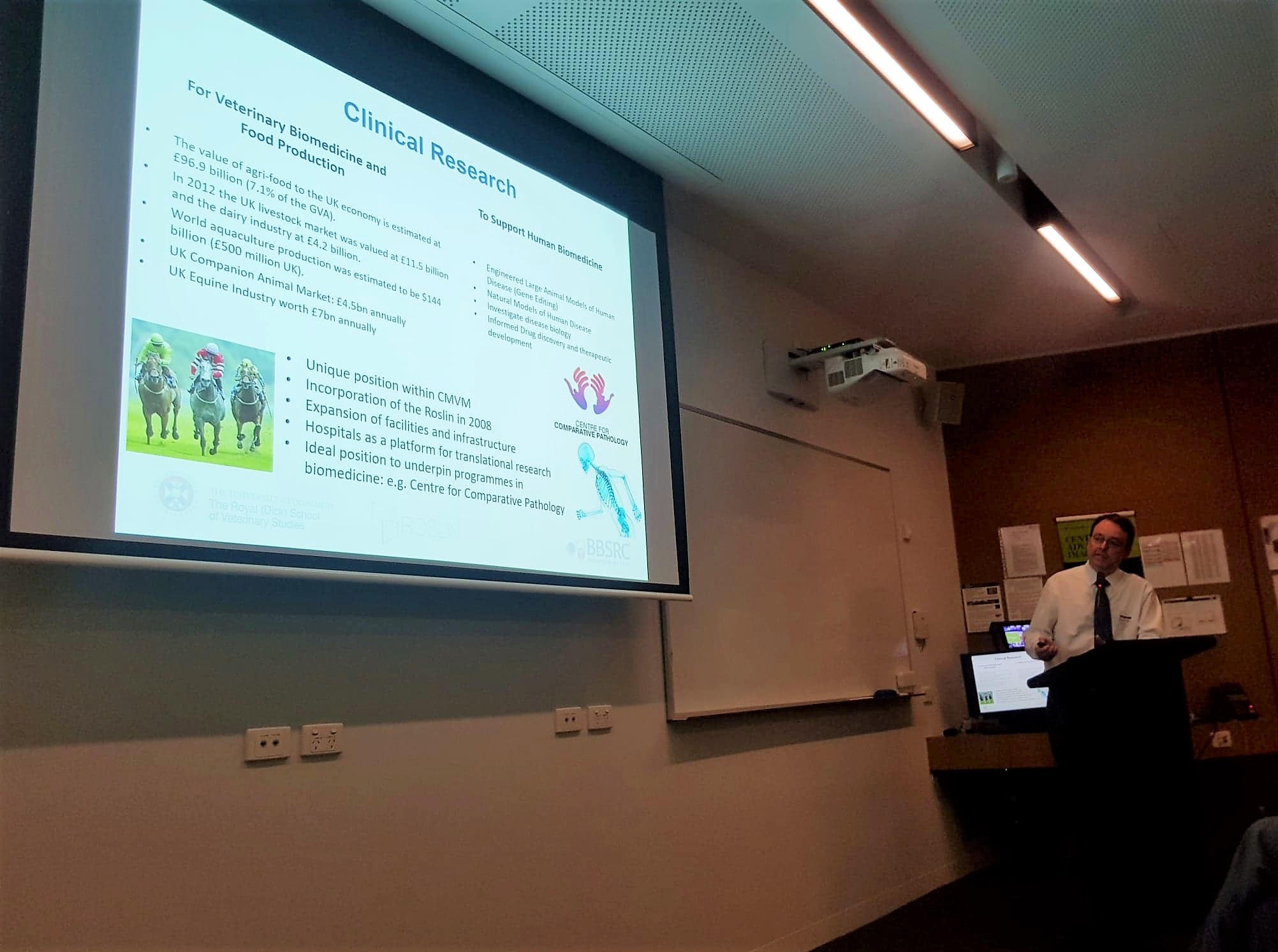
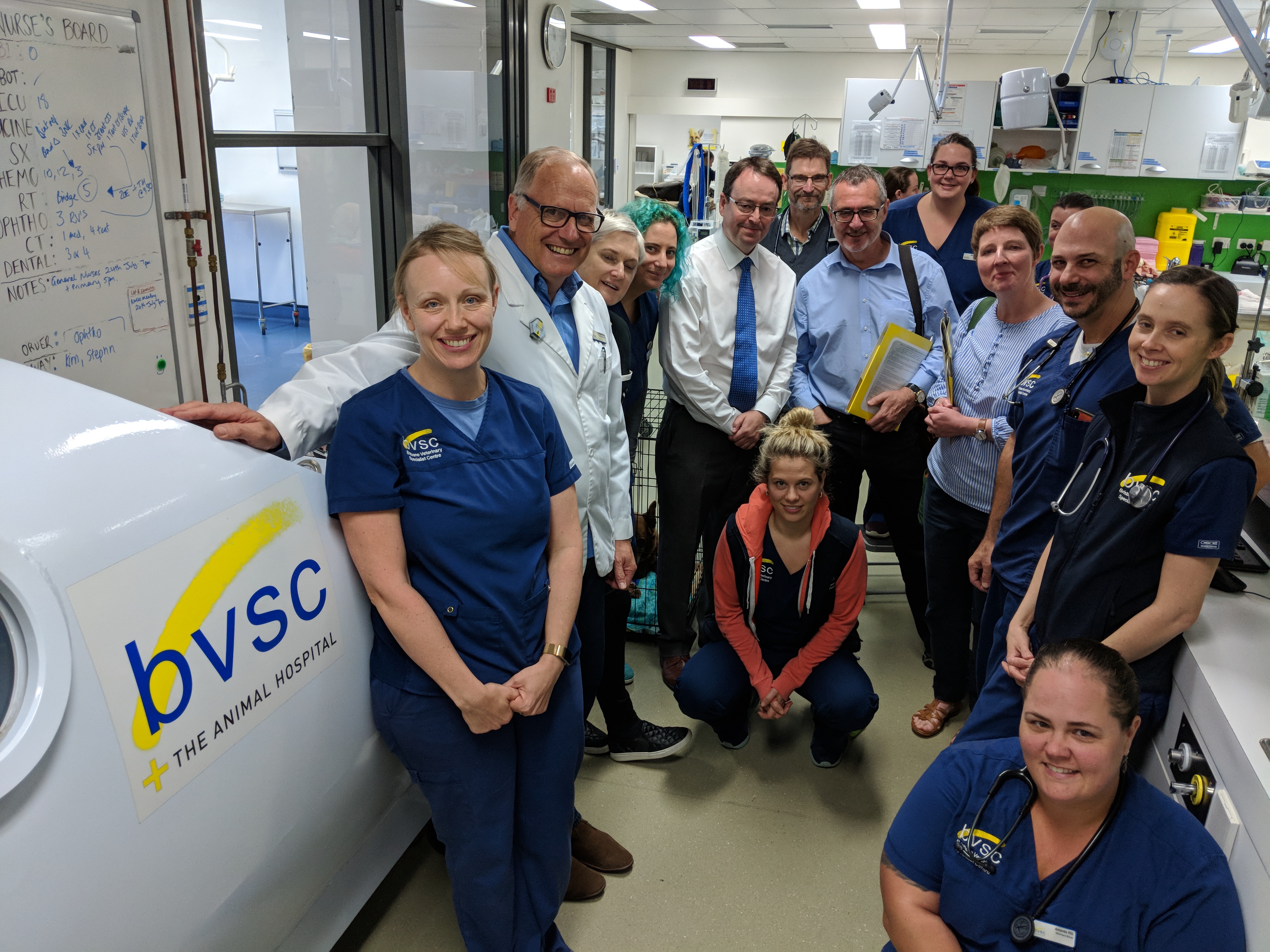
visit Dr Rod Straw and team at the Brisbane Veterinary Specialist Centre (BVSC).
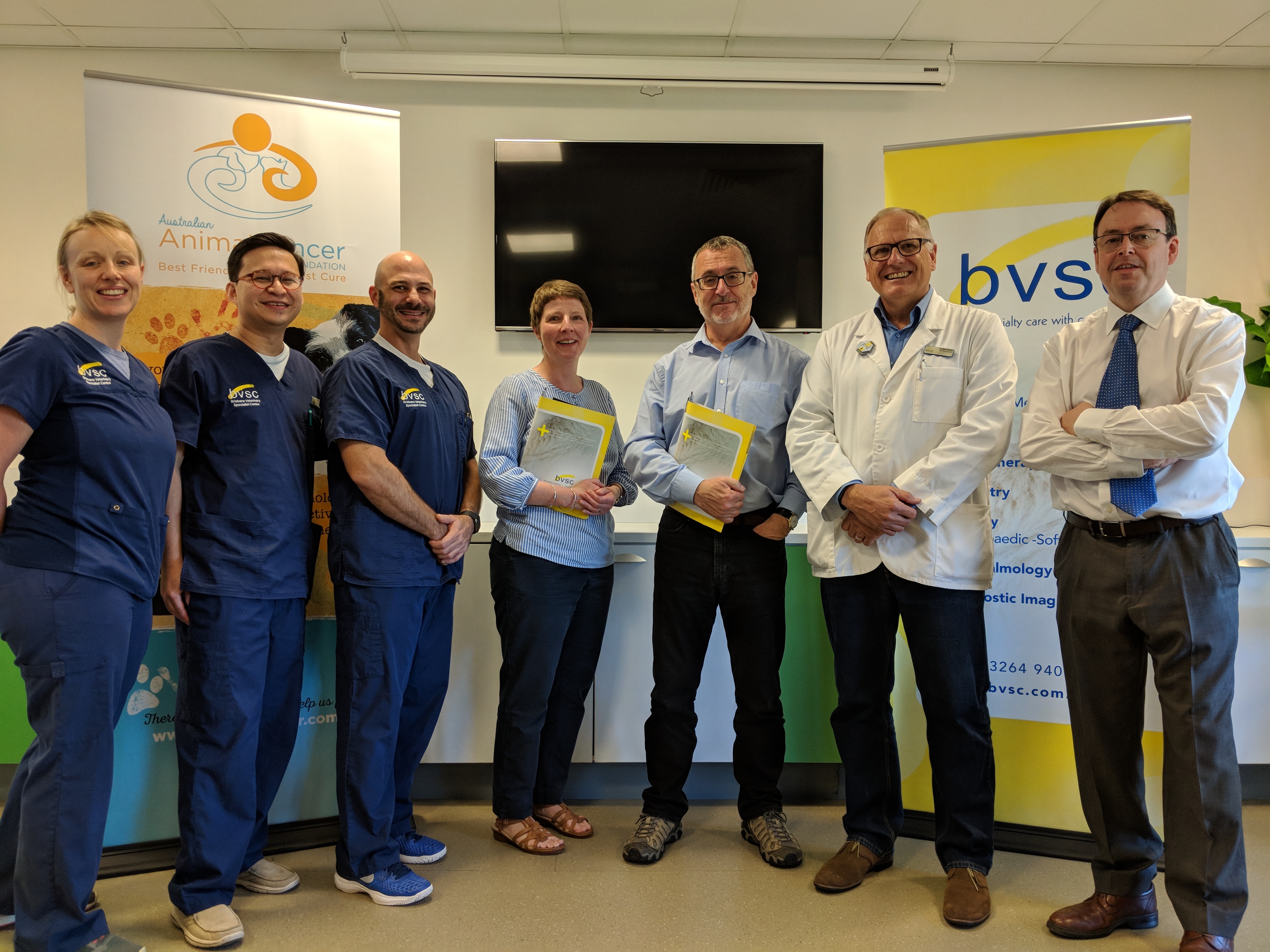
Left-to-right: Nurse Manager, Layla Wilkinson; Small Animal Surgery Specialist, Marvin Kung; Radiation Oncology Specialist, Elias Gumpel; University of Edinburgh Associate Dean and Director of Veterinary Admissions, Dr Sally Argyle; UQ Genomics Director, Professor Dave Burt; Small Animal Surgery (Oncologist) Specialist and BVSC Director, Dr Rod Straw; and University of Edinburgh William Dick Chair of Veterinary Clinical Studies, Professor David Argyle.
Media: Maria Moran, maria.moran@cai.uq.edu.au, +61 7 3365 1785

